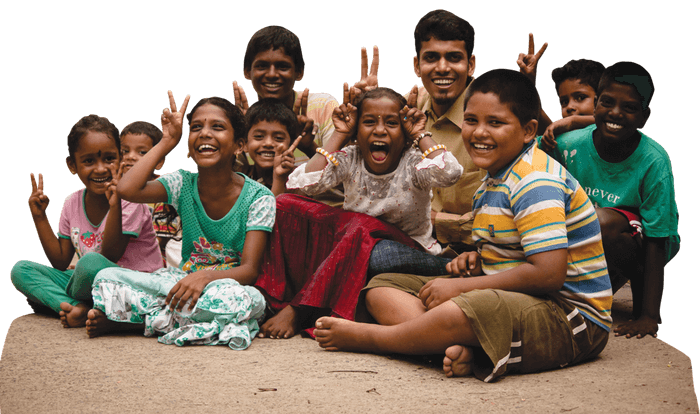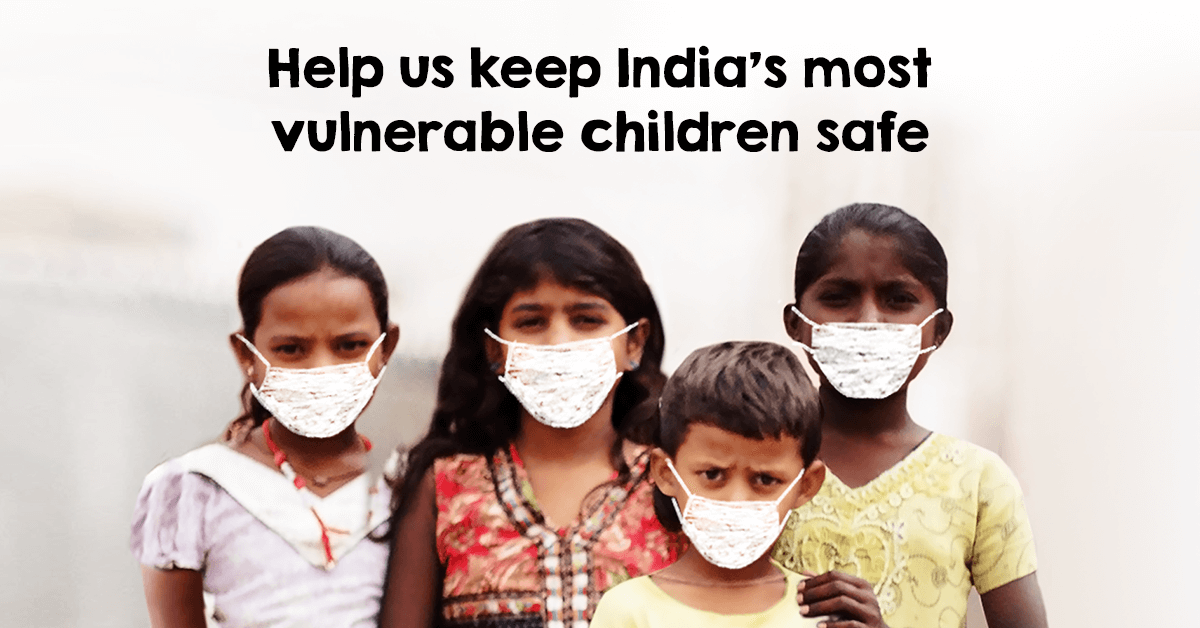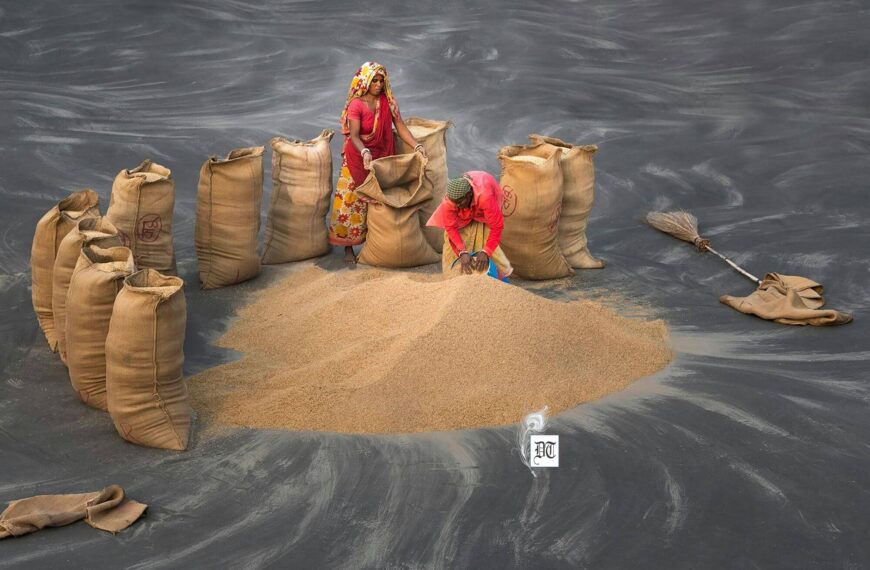A national level workshop on Covid-19 and children – a rural perspective, organised jointly by CCDRR Centre, NIDM and CRY, deliberated on several issues. A report for Different Truths.
Child Centric Disaster Risk Reduction (CCDRR) Centre, National Institute of Disaster Management (NIDM), Ministry of Home Affairs, Govt. of India organised a national level workshop on Covid-19 and Children: A Rural Perspective, in collaboration with CRY – Child Rights and You, according to a media release of CRY.
With the third wave of the pandemic on anvil, it was vital to reflect on the past learnings…
As the Covid-19 penetrates to the rural areas from the urban and peri-urban areas, children are likely to be significantly affected, in comparison to the previous waves. With the third wave of the pandemic on anvil, it was vital to reflect on the past learnings and develop an effective child-centric rural preparedness plan.
To further deliberate on the objective of addressing various aspects of rural preparedness in combatting the pandemic, CCDRR, NIDM organised the workshop in collaboration with CRY.
Inaugural Session
The inaugural session of the national workshop moderated by Dr. Kumar Raka was graced by Dr. K Madan Gopal, Senior Consultant (Health), NITI Aayog; Shri Mahendra Rajaram, Disaster Risk and Resilience Officer, UNICEF, and Ms. Puja Marwaha, CEO, CRY.
Dr K Madan Gopal … NITI Aayog said, “During the second wave the virus has propagated from the urban and the peri-urban areas to the rural areas….”
Dr K Madan Gopal, Senior Consultant (Health), NITI Aayog said, “During the second wave the virus has propagated from the urban and the peri-urban areas to the rural areas. It has been a natural course, as during the first wave people in rural areas had not been much exposed to the virus, hence more vulnerable in terms of getting contaminated during the second wave. And now that the virus has penetrated the rural areas, we need to look at how we can be more prepared so that the surge doesn’t happen.”
Dr Gopal added, “The call of the hour is to ensure protection and safety of the rural communities, especially children. We need to be prepared and have the capacity to tackle surge in cases per day with reference to children. The government of India has taken measures with top priority to increase the preparedness level in the rural areas. He highlighted that the medical infrastructure like beds with ICU facilities are all available.
“The pandemic has overshadowed the developmental activities of the GoI…”
“The pandemic has overshadowed the developmental activities of the GoI like developing indigenous vaccines,” he emphasised, as per the release.
Different Needs of Children
Prof. Santosh Kumar, HoD, GiDRR & PD, CCDRR, NIDM said, “There is a need to factor in the different needs of children across different age-groups and build convergence and synergy among different stakeholders to address the issues. Generational impact due to Covid-19 is likely to happen and it is important to study its impacts on education, especially dropout of girls from schools.
“If we are not better prepared, vulnerability would be multiplied….”
“If we are not better prepared, vulnerability would be multiplied. Trauma management and managing quarantine/isolation in marginalised areas where there is often lack of space too needs serious thought. He also emphasised on creating platforms to hear children voices and learn about vulnerabilities”
Highlighting CRY’s efforts during the past two waves of the pandemic, Puja Marwaha, CEO, CRY said, “While in the first wave our focus was to reach out to children and the communities in our rural intervention areas and support them with dry rations and hygiene products, during the second wave we worked more closely with the health workers in building facilities like isolation centres and adequate testing infra-structure at the village levels; and also supported people with oxy-meters, oxygen cylinders and other emergency health equipment.”
Vaccine Mitra Campaign
She also spoke about the level of risk children are likely to face in the upcoming Covid-19 wave and stressed on increased focus on vaccination and Covid protocols being key to prevent the spread of the pandemic. “CRY has introduced ‘Vaccine Mitra’ campaign to raise awareness about the importance of vaccines and to address vaccine hesitancy. On ground level, Covid Support Groups have been formed in each village by selected volunteers who promote Covid Appropriate Behaviour, ensure immediate COVID care through the local Health system and stay vigilant to children’s issues due to high vulnerability in these times.” She added.
Mahendra Rajaram … UNICEF said, “There are three important aspects at the Gram Panchayat level that need to be looked at….”
Elaborating on the importance of empowerment programmes at the grassroots level, Mahendra Rajaram, Disaster Risk and Resilience Officer, UNICEF said, “There are three important aspects at the Gram Panchayat level that need to be looked at. First is vaccination, second is recovery, which is critical for disaster management. Over the last few months while the focus was on vaccination, vaccine hesitancy and shortage of supply; somehow efforts on the recovery aspects have been largely missed out.” He also insisted that “Gram Panchayats should be strengthened in fighting the pandemic at the local level and should be equipped to tackle future emergencies.”

Voices from the Grassroots
The second session of the workshop focused on the voices from the grassroots, where Covid heroes from CRY-supported projects in various states shared their valuable experiences and learnings which were indeed a treasure house of experiential knowledge crucial to fight the forthcoming waves of the pandemic. The speakers included Mohammad Raihan from Kaushambi, Uttar Pradesh; B.P. Suryavanshi and Madhukar Kerba Galphade from Latur, Maharashtra; J. Lalithamma and Nagaratnamma from Chittoor, Andhra Pradesh; Montu Ahantham from Imphal, Manipur and Swapan Panda from Purba Mednipur, West Bengal.
The third and the concluding session of the workshop witnessed an enriching and insightful discussion…
The third and the concluding session of the workshop witnessed an enriching and insightful discussion where experts reflected on various topics related to the preparedness as the pandemic spreads further into rural areas. The topics included mapping children’s vulnerabilities, identifying risks to their psycho-social well-being, addressing their access to education, health and nutrition services and child protection mechanisms to ensure they remain within the safety net.
The experts who participated in the panel discussion included Amar Nayak, Global Humanitarian Advisor, ActionAid International; Murali Kunduru, Humanitarian Operations, Partnership and Localisation Advisor, GEHSP, Save the Children and Swati Bhattacharjee, Senior Asst. Editor, Anand Bazaar Patrika. The panel was moderated by Ms. Priti Mahara, Director Policy, Research and Advocacy, CRY.
The workshop drew over 850 participants across a wide range of stakeholders…
The workshop drew over 850 participants across a wide range of stakeholders including Government Officials, Civil Society Organisations, academicians, and students.
About CCDRR, NIDM
The Child Centric Disaster Risk Reduction (CCDRR) Centre is a joint initiative of National Institute of Disaster Management (NIDM), Ministry of Home Affairs, Government of India in collaboration with United Nations International Children’s Emergency Fund (UNICEF). The Centre is supporting States by organising trainings and capacity building programmes towards Child related Data Management, Risk Informed Programming, Child Risk Impact Assessment (CRIA), and Policy Framework for Disaster Management Institutions and Academia. The Centre is working with ATIs, SDMAs, and Sectoral Institutions, Universities, Colleges, Research Institutions CSOs etc.
About CRY – Child Rights and You
CRY – Child Rights and You is an Indian NGO that works towards ensuring happier childhoods for all children. Over the last 4 decades, CRY and its partners have ensured lasting change in the lives of over 3 million underprivileged children in India. For more details visit www.cry.org
Visuals sourced from CRY





 By
By


 By
By